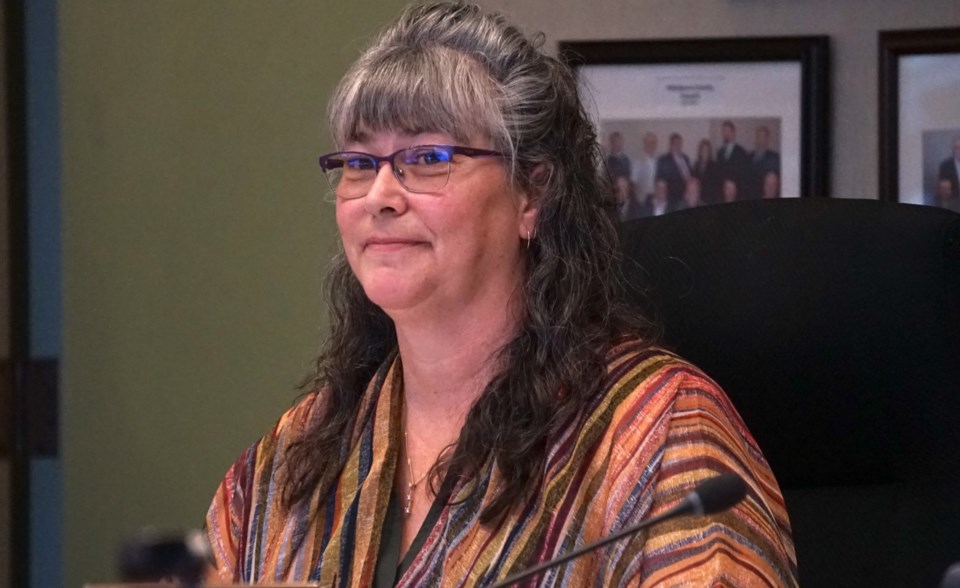ATHABASCA – Athabasca County is throwing out its recently developed council compensation bylaw and starting fresh after councillors realized they gave themselves a higher pay raise than intended.
During their July 18 committee of the whole meeting, councillors voted 5-3 — Reeve Brian Hall and councillors Natasha Kapitaniuk and Ashtin Anderson were opposed, and Coun. Camille Wallach was absent — to return to a base pay structure with compensation for mileage instead of being paid per meeting attended.
“Let’s remind ourselves that we didn’t have a problem putting our hat in the ring with what was being offered at the time. We didn’t want to make any changes, we knew what we were getting when we came in,” said Coun. Tracy Holland.
Councillors unanimously approved the new compensation policy on the advice of then-acting CAO Pat Vincent Oct. 26, 2023. Vincent noted some discrepancies with how councillors were being paid and taxed. After the policy took effect on Jan. 1, council voted to have the compensation reviewed, which revealed the extent of the pay increase.
“I think we were given some bad advice, and that’s on everybody, but we need to figure this out,” said Coun. Rob Minns. “I think we attract people because they want to pursue the betterment of the community. If you start running for council because the money is there, that’s a big red flag.”
In 2022, councillors earned an average of $59,278 in gross pay, including their mileage and other benefits. Under the proposal from the county’s consultant, councillors would earn $58,350 plus mileage. Hall would earn $68,000 as reeve and Anderson would earn $63,000 as deputy, with mileage on top.
Under the per diem model, councillors were expected to earn an average of $76,319 in the first year, although individual totals are heavily dependent on the number of additional committees they sit on. The 44 regular meetings councillors must attend — county council, committee of the whole, policy review, and budget and finance — are covered by their base salary.
“The council before us had a model that worked and it especially worked when they didn’t have to leave their houses for meetings,” said Kapitaniuk. “It’s easy to not think about time when you can Zoom into every meeting. You don’t have travel time, you don’t have overnights, and you don’t three- or four-day conferences to attend.”
Kapitaniuk also stressed the importance of paying people for the additional meetings, noting that not everyone can afford to take four days off work to attend a conference, or pay for additional childcare to attend a meeting without the per diem.
“If we want to attract people of all different wisdoms and experiences, we have to respect that there’s expenses that come with that — time of work, childcare, these are things that haven’t been looked at by the councils of the past,” she said. “I want to be a progressive council; I want people to run at the next election and not have to worry about giving up a job or other financial stress.”
Councillor Kelly Chamzuk said the idea of a pay raise had never crossed her mind, until Vincent recommended it.
“It wasn’t even on my radar — it wasn’t a consideration to be changing our salary or how we got paid,” she said. “I totally agree that I voted in a way where I didn’t have all the information.”



